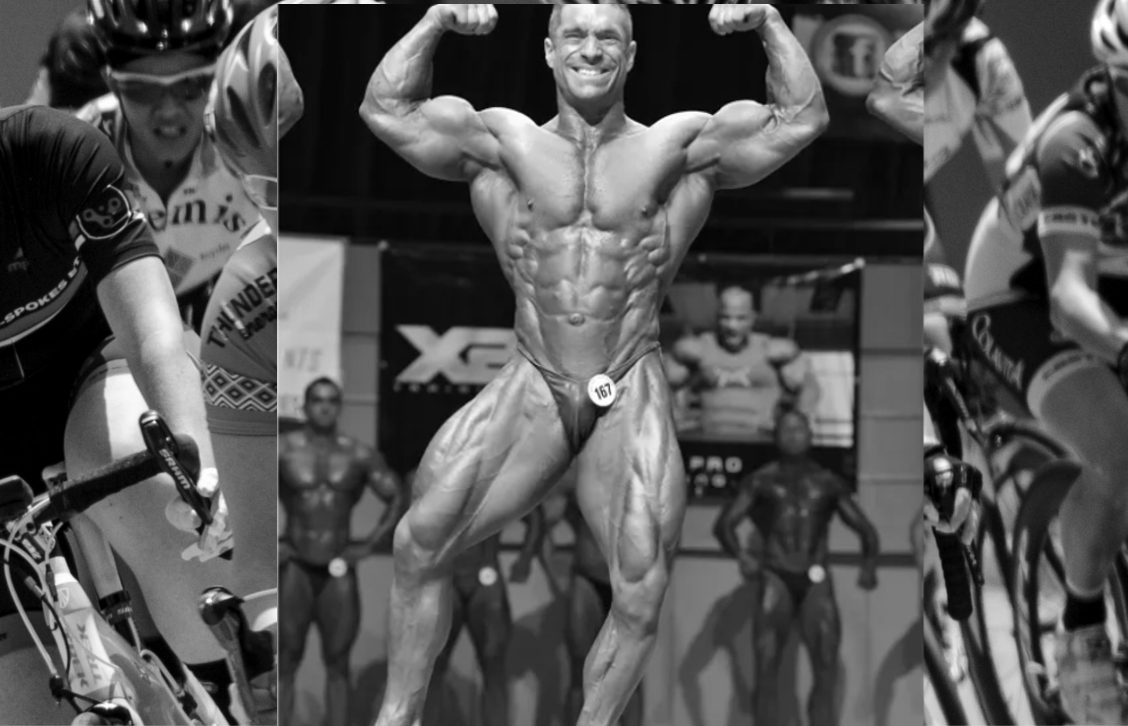CCES hands Halifax steroid smuggler eight year ban at cycling race
Greg Doucette ran afoul of anti-doping regulations again after participating in a road race in Nova Scotia


Cycling’s newest doping violation comes from an unlikely source.
Greg Doucette, who made headlines in 2012 when he was charged with smuggling illegal steroids into Canada, crossed paths with anti-doping officials in May, 2018. After his latest run-in, CCES announced the former weightlifter would be banned from sport for eight years as a result of refusing to submit a sample.
Who is Greg Doucette?
While new to cycling, Doucette is most famous for his career as a professional powerlifter and his 2012 arrest for smuggling illegal steroids. Doucette won the heavyweight division at the 2012 Canadian National Bodybuilding Championships, earning him a prestigious Pro Card from the International Federation of Bodybuilders (IFBB)
The achievement was short-lived. Just a week later, Doucette was charged on August 24, 2012. Officials found $250, 000 of performance-enhancing drugs and seized $23, 000 in case from his Halifax home. In 2014, Doucette paid $52,000 fine after being successfully charged with “possessing, smuggling, importing, trafficking and distributing anabolic steroids.”
How the anti-doping violation happened
Doucette took up cycling in 2017, following a successful career as a professional powerlifter. The Halifax rider ran afoul of CCES regulations after competing at the Tour of Keji stage race in Kejimkujik National Park. The new cyclist finished mid-pack, 11th of 19 in the “C” category.
Since the Tour of Keji is a Bicycle Nova Scotia event, and requires a UCI License to participate, athletes participating are subject to anti-doping regulations. Doucette refused to provide a sample when approached by a Drug Control Officer (DCO) after the event.
While powerlifting competitions include categories that do not restrict the use of performance-enhancing drugs (“PEDs”), all cycling disciplines are subject to anti-doping regulations. According to the CCES decision, after years of PED use for powerlifting competition, Doucette’s body “no longer produces enough testosterone and, on the advice of his doctor, the Athlete began to take (and continues to take) weekly testosterone injections.”
Knowing that he would would test positive, Doucette refused to provide a sample for the DCO, resulting in a violation of the CAPD.
Why an eight year ban?
Tour of Keji was not Doucette’s first run in with CCES. Before his powerlifting career, competed as a bodybuilder and powerlifter in tested competitions. According to the CCES decision, Doucette first tested positive in late 2009, and was suspended for two years starting January 13, 2010.
Article 10.7.1 of the Canadian Anti-Doping Program (CADP) states that for an athlete’s second violation, the period of ineligibility is twice the standard duration.
While Doucette’s weekly testosterone injections are on the advice of a medical professional, he had not acquired a Therapeutic Use Exemption (TUE) which might have allowed him to participate in a sanctioned event without violating anti-doping regulations.
Doucette’s defense
Choosing to represent himself at the anti-doping violation hearing, Doucette presented several arguments against his violation.
The athlete argued he did not read the the parts of the BNS license agreement which state he would be agreeing to be subject to CAPD regulations and testing. Along the same lines, Doucette argued that he did not receive a physical copy of his license until after the Tour de Keji and, when he read on the license that he could be subject to doping tests, did not sign the license.
Further, Doucette argued the DCO failed to present himself as required. His defense also alleged that the DCO joked about the athlete had been “randomly” selected.
Finally, Doucette argued that the Athlete Refusal Form was altered after he had signed it.
Against the length of the suspension, Doucette argued that he did not intend to cheat, and that the length of the eight year ban is unfair.
None of these arguments were accepted by Arbitrator Allan J. Stitt.
